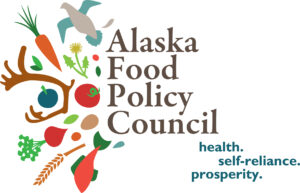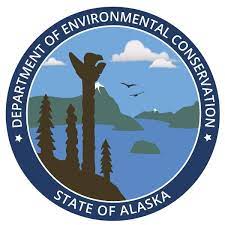A food hub is defined by the USDA, as “a centrally located facility with a business management structure facilitating the aggregation, storage, processing, distributions, and/or marketing of locally/regionally produced food products.”
Food hubs benefit farmers by connecting them with additional (and sometimes larger) markets and providing services like collective marketing, accounting, sales, and education. Food hubs can help get local food into underserved areas, as well as assist in gleaning activities to benefit food pantries, increasing access to fresh healthy foods. Food hubs strengthen local economies by creating jobs and new economic opportunities for farmers. They are convenient for both farmers and consumers, allowing for a one-stop-shop (consumers) or one-stop-drop (farmers). Food hubs can strengthen food security by supporting local food systems and providing enhanced sales opportunities for specialty crop producers.
Alaska’s agriculture sector is growing. According to the 2017 USDA Agricultural Census, Alaska ranks first in the nation in new and beginning farmers at 46%. Alaska also ranks first in growth in total number of farms, increasing by almost 30% between 2012 and 2017, while most states have declined. With a value of around $70.5 million, agriculture industries are a source of renewable economies and are improving food security for many Alaskans. Despite this growth, Alaska still imports over 95% of its food- there is simply not enough production, nor accessible and affordable regional distribution systems.
Food hub popularity is gaining momentum in Alaska, with many communities exploring creating their own place-based models. Here’s a collection of resources curated by the Alaska Food Hubs Working Group, a collaborative project of the Alaska Food Policy Council:
Alaska Food Hubs Working Group
Food Safety & Operations Best Practices Toolkit
Table of contents:
- Introduction to the Alaska Food Hub Working Group
- Getting Your Food Hub Started
- Food Safety & Permitting for Food Hubs
- Education & Training for Food Hubs
- Resources & Reports for Food Hubs
Alaska Food Hub Recommendations Report, February 2024

by Ken Meter, for the Alaska Food Policy Council



